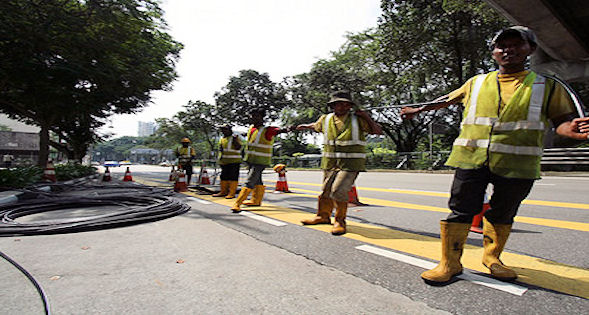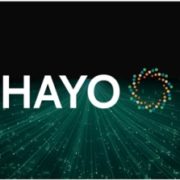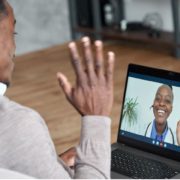By SEGUN ORUAME
It is over a year since two undersea cables landed in Lagos, arguably, West Africa’s commercial capital and one of the major business hubs in Africa. The first to land, Main One Cable is promoted by a number of Nigerian investors with diverse entrepreneurial background s ranging from the financial to the technology sector. The CEO of Main One Cable, Ms. Funke Opeke, was before her new portfolio, the chief technical officer of MTN Nigeria, the country’s biggest mobile network of over 40 million subscribers.
Built with over $240 million, ‘the 7000 kilometres fiber optic Main One Cable runs from Portugal to Nigeria and Ghana, and also branches out to Morocco, the Canary Islands, Senegal and Ivory Coast.’ Quoting Reuters: “the Main One Cable Company says it delivers more than ten times the broadband capacity of the South Atlantic Terminal (SAT-3), Nigeria’s sole existing undersea cable, and 20 times the entire satellite capacity of sub-Saharan Africa.”
Globacom’s international submarine cable, Glo 1landed at about the same time as the Main One Cable in what has helped to drive competition and sweeten broadband access in a market where connectivity has been largely depended on very costly satellite infrastructures and the erratic WASC/SAT-3 cable owned by moribund state owned telco, NITEL Plc.
The 10,000 kilometres Glo-1 undersea cable worth some $800 million is promoted by Mike Adenuga’s owned Globacom Limited with several landings in coastal cities across West Africa. Globacom is Nigeria’s second biggest mobile network with over 30 million subscribers. Its landing in Lagos in 2010, joined the Main One Cable to expand the prospects for increased and cheaper bandwidth connectivity access – the major snag in the take off of several Internet driven services whether in the health, education and financial sector among several others.
Crashing cost of access
Since the commercial launch of these two cables, prices of connectivity have crashed greatly and there is a more robust delivery of bandwidth like never before helping to drive new level of services that were once non-existence.
Take the increasingly popular BlackBerry (BB) services offered by all the four GSM networks. There has been about 45% cut in Internet cost through the BB window. These also apply to other forms of Internet access. In the last 10 months, BB tariff has crashed considerably from about $35 per month to about $20 per month whether on MTN, Globacom, Airtel or Etisalat network. This has helped to drive up the popularity of mobile Internet on all smartphones generally and BB services specifically.
Also, in the last 10 months, as recent research has shown, Nigeria is the largest market for smartphones and account for over 50% of all smartphones sales on the continent in the last two quarters. This, no doubt, is as a result of the crash in Internet tariff.
The existing submarine cables in Nigeria carry an installed capacity of over 19.2 terabytes and over 340 gigabyte combined, a major increase in the size of the pipe available to drive bandwidth depended services. Already, the lower Internet tariff is being felt in the hinterlands as terrestrial infrastructure companies take advantage of the increased available bandwidth to install connectivity pipes and open up once un-served remote locations in several of Nigeria’s state capitals including Abuja, the country’s political capital.
BCN Limited, Phase One Limited and Layer 3 Limited – three backbone connectivity companies with heavy presence in Abuja are already leveraging on these new opportunities to take connectivity to towns and cities in northern parts of Nigeria’s vast over 927, 000 square kilometer landmass. The immediate casualty of this development is satellite infrastructure providers all of which are foreign based.
Both Glo-1 and Main One Cable are firming up their presence in Nigeria’s booming Oil & Gas sector, Globacom is using its submarine cable to serve major oil companies and helping them to lower the cost of connectivity like never before. “Glo 1 has signed on a number of major oil companies in the past few months, signaling increasing preference for the cable as bandwidth provider of choice, according to a local news publication, the Nigerian Pilot. The list of customers includes: Shell Petroleum Development Company (SPDC), Total ELf, Chevron, Agip, Nigeria Liquefied Natural Gas (NLNG), Exxon Mobil and TransOcean. Hitherto, the major oil companies had to depend on satellite connectivity for major high-speed international bandwidth link that connects all their operation centres including remote locations in the Niger Delta creeks and corporate offices in Lagos and the United Kingdom.
The soul of connectivity is undersea cables
“New analysis from Frost & Sullivan ‘West African Broadband Market Tracker’, covering Nigeria, Cameroun and Cote d’Ivoire, finds that the market earned revenues of $929.9 million in 2009 and estimated this to reach $1.932 billion in 2016.
“The research stated that Internet Service Providers (ISPs) still remain the dominant players in the region, except for Nigeria where mobile broadband connections have outpaced fixed broadband connections. “In comparison to other countries, high investments are made in infrastructure development and broadband services present the highest areas for growth opportunities due to the decline in voice revenues,” the report said.
“The analysts said these investments [in undersea cables] would unlock the constraints in the West African telecommunications market and catalyse the economic potential of the region. They stressed that a compelling opportunity exists to lower the restrictive cost of international telecommunications and significantly expand Internet access via submarine cable, which will lead to greater efficiency and more competitive business.”
“We see new and expansive growth prospects for ISPs who have to remodel their business offerings to reflect the new opportunities and trends,” said Gboyega Ojuri, CEO of Lagos based ISP Junisat. General Manager of DDC Networks of Computer Warehouse Group, Mr. Oladipo Raji, says Nigeria needs to step up on capacity utilisation of the cables. While there are have an exciting uptake of the privately-owned cable facilities, he sees explosive growth in months ahead through an expanding window for e-commerce, e-payment; e-learning, ehealth, e-government and the likes.
Sierra Leone and the coming of fibre sea optic cables
What do all these hold for other West Africa countries? A bounty of change! Africa is set to experience its own bandwidth glut from years of bandwidth famine. That is why the expected landing of fibre optic sea cable in a country like Sierra Leone is bound to change for good the way business are done. Cost of access will crash and connectivity will become more readily available. It then means people who were once unconnected to the global knowledge space will now be able expeience the unique leapfrogging that only ICT can bring.
The internet will readily become avaibale in the pocket. Many people on the streets of Freetown need only have a smartphone to access the Internet at an affordable rate and experience the transforming power of ICT in the workplaces, homes, hospital, banks, schools, farmlands and mining sites. Change is already in the offing for Sierra Leone. They only need to see what the coming of undersea fibre optic cable has done to Nigeria in only 12 months to have a taste of what is about to happen in the land of the Lion Mountains.






























